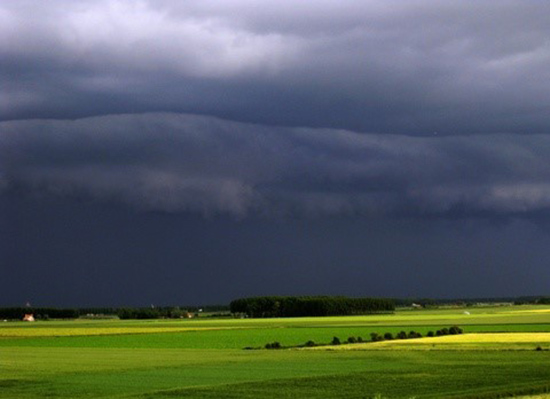Reading sample
Introduction
To start with, I'll tell you how I found God and Jesus Christ, what evidence I have received and what real miracles have ever happened to me.
Then I will share some Bible verses that are particularly important to me. They have always given me the strength to follow only God's way - and they are words that you don't normally hear from the pulpit.
In my entire life, I have seen many people read books - but never anyone read the Bible. People behave as if they have been poisoned as soon as they hear its words. And if they read it and were seen by others, it would be the end of the world for them. They feel so ashamed that they would prefer to disappear. Yes: they never touch the Bible!
I will amaze you and show you how unique the Bible is. Start reading and be amazed yourself!
If you seriously engage with it, you will be rewarded with wisdom.
God says: If someone wants to be truly wise, they must first let go of their earthly wisdom. True wisdom means nothing other than taking God seriously, loving him, believing in him and hoping in him - with all our strength, with all our thoughts and deeds - and believing in him: yesterday, today, tomorrow and for all eternity. Amen!
Don't think that I spent my childhood well-behaved and God-fearing. "Revolutionary" and "cruel" are more like it. Nevertheless, I have always helped the weak and oppressed, and I detest betrayal, lies, intrigue, hypocrisy, falsehood - and especially those "do-gooders" who look like sheep but are actually wolves. I always had to help myself and fight my way through life. Whenever I needed help, these so-called friends disappeared immediately. But anyway, read on - you won't get bored!
A thunderstorm and engine failure over the North Sea
I still don't know why I signed up for this flight. It was pure suicide - a "flight of no return".
It was an extremely hot afternoon and the air was humid. In the distance, out over the sea, you could hear the incessant rumble of a thunderstorm, but in Emden the weather was still quite good. Air traffic had actually been cancelled and I was sitting in the flight office with a few other pilots.
Suddenly the door burst open and my boss came in and told us that a passenger urgently needed to get to the island of Borkum. "Who wants to fly in this weather?" he asked. We looked at each other, but nobody said anything. I stood up and said: "OK, I'll do it."
We often flew VIPs, government officials, actors, pop stars, etc. My passenger was a government official. I took him straight to the aircraft. He only had a briefcase with him, not much luggage.
Three minutes later, we were in the air and I soon saw the weather deteriorating further. "Oh, the weather looks much worse up there than from the ground!" said my passenger. He also apologised that I had to fly in such bad weather, but emphasised the urgency of his appointment. "It's not that bad. We'll manage," I replied.
When I reached the coast, all I could see was a deep black storm front. The clouds spiralled upwards - I realised that we wouldn't have a normal flight if I flew into them.
Actually, I should have cancelled the flight and turned back, but I decided to continue. I radioed that we were flying over the coast and then we went straight into the dark thunderstorm. Less than a minute later, we were in hell. Visibility dropped to zero and the plane was being tossed around like a feather by the rain. I thought it would break apart at any moment. Thunder and lightning alternated every second, and the incredible volume all around made me think we might have been caught in hail.
Thunderstorms can cool the air very quickly, which can lead to icing of the carburettor and engine damage. I checked the carburettor and pulled the lever to feed warm air into it, because when the carburettor ices up, the engine speed rises dangerously.
At that precise moment, the engine stopped - the engine speed dropped to zero.
I radioed an emergency call: "Call sign DEGNU, engine failure over the North Sea between Emden and Borkum."
I reached under my passenger's seat and pulled out a lifejacket with my right hand. "Put it on!" I shouted. I saw that his face was white as a sheet - like a corpse. But I didn't have time for that now. Everything had to happen very quickly. I didn't even have time to put on my own lifejacket - which would have been desperately necessary because I couldn't swim.
This is what it looked like before I flew over the North Sea.
©R. Titze
What had happened? Why had the engine failed? I knew immediately: when I had opened the flap to channel warm air through the carburettor, rainwater had collected and got into the engine.
The speed of the aeroplane meant that the propeller was still turning, but it was no longer providing any thrust - but perhaps it would pump the water out of the engine again.
What I had to do now was to get the engine running again. So I repeatedly activated the starter.
Radio messages came in, but I ignored them - I couldn't afford to lose a second.
I kept looking through the windscreen to see if the propeller was turning faster again. But I couldn't hear anything through the raging storm outside. I also kept an eye on the engine rev counter, but it remained almost at zero.
Suddenly I saw something white about 30 degrees below us. It didn't take me long to recognise what it was:
We had only been about 500 metres above the North Sea when the whole incident started - and we had sunk quickly.
A second later I saw white, foaming waves coming towards us at great speed.
I knew that we would be in the ice-cold water in a few seconds ...
Latest book
„Call from heaven„
from Hans Bieri
Autobiography of a pilot
PDF version

